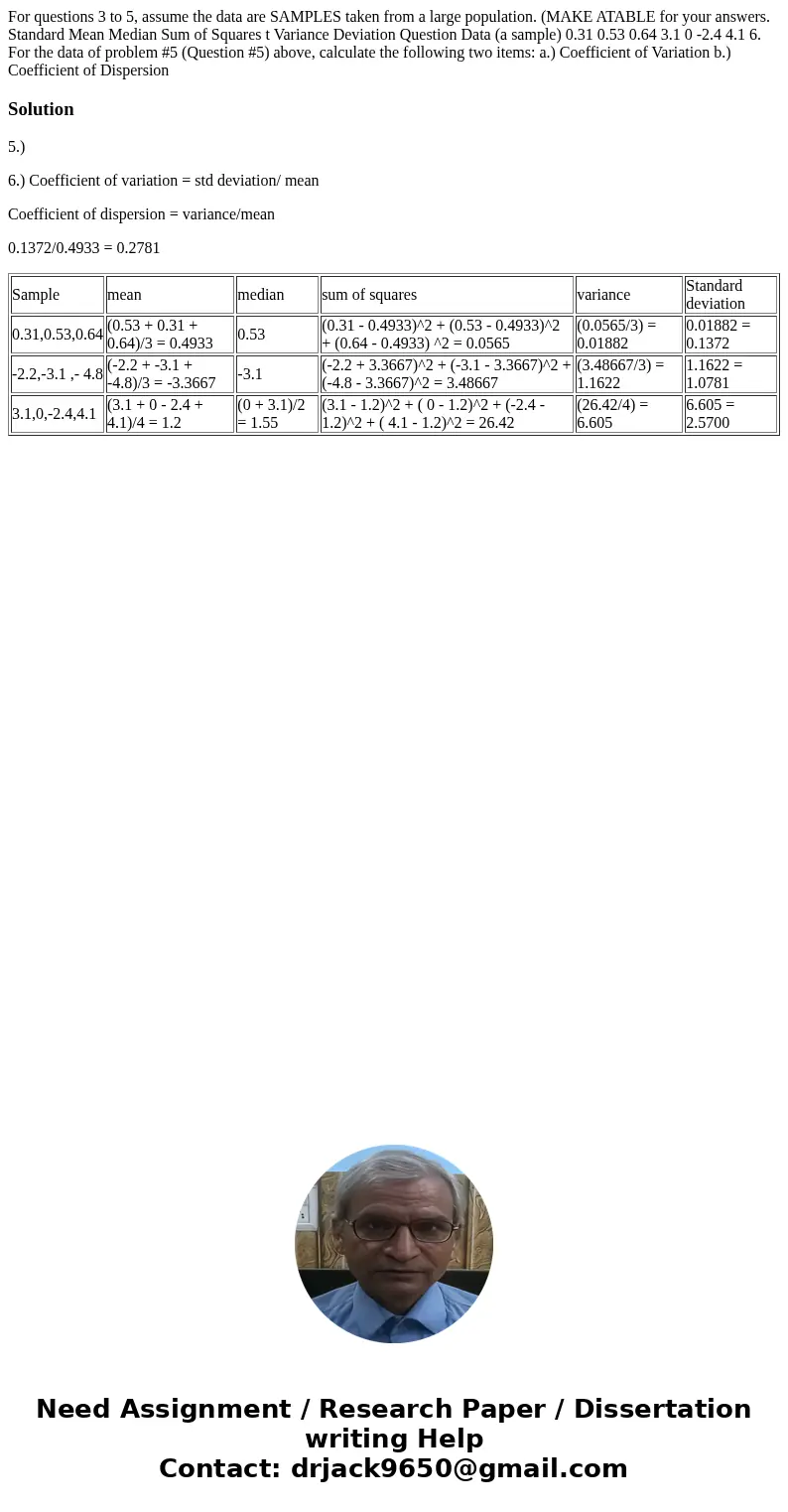For questions 3 to 5 assume the data are SAMPLES taken from
For questions 3 to 5, assume the data are SAMPLES taken from a large population. (MAKE ATABLE for your answers. Standard Mean Median Sum of Squares t Variance Deviation Question Data (a sample) 0.31 0.53 0.64 3.1 0 -2.4 4.1 6. For the data of problem #5 (Question #5) above, calculate the following two items: a.) Coefficient of Variation b.) Coefficient of Dispersion

Solution
5.)
6.) Coefficient of variation = std deviation/ mean
Coefficient of dispersion = variance/mean
0.1372/0.4933 = 0.2781
| Sample | mean | median | sum of squares | variance | Standard deviation |
| 0.31,0.53,0.64 | (0.53 + 0.31 + 0.64)/3 = 0.4933 | 0.53 | (0.31 - 0.4933)^2 + (0.53 - 0.4933)^2 + (0.64 - 0.4933) ^2 = 0.0565 | (0.0565/3) = 0.01882 | 0.01882 = 0.1372 |
| -2.2,-3.1 ,- 4.8 | (-2.2 + -3.1 + -4.8)/3 = -3.3667 | -3.1 | (-2.2 + 3.3667)^2 + (-3.1 - 3.3667)^2 + (-4.8 - 3.3667)^2 = 3.48667 | (3.48667/3) = 1.1622 | 1.1622 = 1.0781 |
| 3.1,0,-2.4,4.1 | (3.1 + 0 - 2.4 + 4.1)/4 = 1.2 | (0 + 3.1)/2 = 1.55 | (3.1 - 1.2)^2 + ( 0 - 1.2)^2 + (-2.4 - 1.2)^2 + ( 4.1 - 1.2)^2 = 26.42 | (26.42/4) = 6.605 | 6.605 = 2.5700 |

 Homework Sourse
Homework Sourse